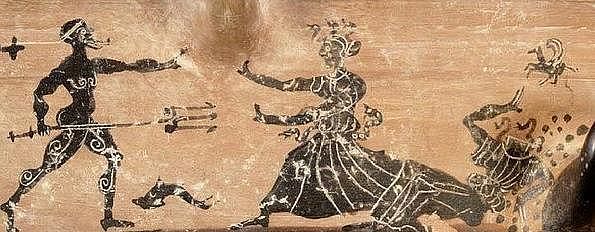Class 8 Exam > Class 8 Tests > Test: World History- 2 - Class 8 MCQ
Test: World History- 2 - Class 8 MCQ
Test Description
10 Questions MCQ Test - Test: World History- 2
Test: World History- 2 for Class 8 2024 is part of Class 8 preparation. The Test: World History- 2 questions and answers have been prepared
according to the Class 8 exam syllabus.The Test: World History- 2 MCQs are made for Class 8 2024 Exam.
Find important definitions, questions, notes, meanings, examples, exercises, MCQs and online tests for Test: World History- 2 below.
Solutions of Test: World History- 2 questions in English are available as part of our course for Class 8 & Test: World History- 2 solutions in
Hindi for Class 8 course.
Download more important topics, notes, lectures and mock test series for Class 8 Exam by signing up for free. Attempt Test: World History- 2 | 10 questions in 20 minutes | Mock test for Class 8 preparation | Free important questions MCQ to study for Class 8 Exam | Download free PDF with solutions
Test: World History- 2 - Question 1
How did the rise of Constantinople contribute to Roman culture?
Detailed Solution for Test: World History- 2 - Question 1
Test: World History- 2 - Question 2
Which one of these figure from Greek Mythology causes people to turn to stone?
Detailed Solution for Test: World History- 2 - Question 2
| 1 Crore+ students have signed up on EduRev. Have you? Download the App |
Test: World History- 2 - Question 3
According to Davis (1995) women may seek cosmetic surgery because ____
Detailed Solution for Test: World History- 2 - Question 3
Test: World History- 2 - Question 4
Consider the following statements :
- Periplus is a Greek word meaning sailing around.
- Erythraean was the Greek name for the Mediterranean Sea.
Which of the statements given above is/are correct?
Detailed Solution for Test: World History- 2 - Question 4
Detailed Solution for Test: World History- 2 - Question 5
Detailed Solution for Test: World History- 2 - Question 6
Test: World History- 2 - Question 7
Which of the following was contemporary of Indus Valley Civilisation?
- Egypt
- Mesopotamia
- Greek
Select the correct answer using given codes below.
Detailed Solution for Test: World History- 2 - Question 7
Test: World History- 2 - Question 8
Which of the following crop not known to have grown during Indus Valley Civilisation?
Detailed Solution for Test: World History- 2 - Question 8
Detailed Solution for Test: World History- 2 - Question 9
Test: World History- 2 - Question 10
Which statement best describes a result of the Battle of Gettysburg?
Detailed Solution for Test: World History- 2 - Question 10
Information about Test: World History- 2 Page
In this test you can find the Exam questions for Test: World History- 2 solved & explained in the simplest way possible.
Besides giving Questions and answers for Test: World History- 2, EduRev gives you an ample number of Online tests for practice
Download as PDF













